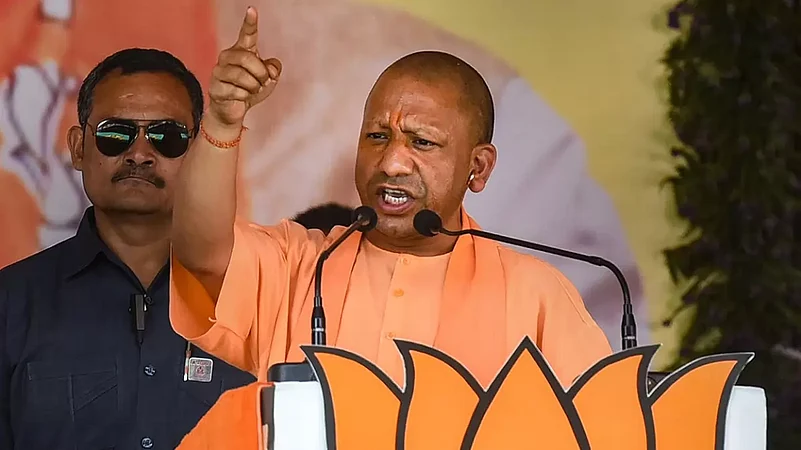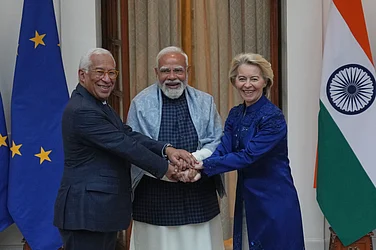Uttar Pradesh Chief Minister Yogi Adityanath on Friday said Atal residential schools, named after former prime minister Atal Bihari Vajpayee, will not only provide education to underprivileged children but also instill Indian values and gurukul traditions.
The chief minister made this assertion while interacting with teachers and students in the 'Atal Residential School Guruvarta Sangam' programme organised here, according to an official release.
Adityanath said Atal residential schools with world-class facilities spread over 12 to 15 acres are operational in 18 divisions of the state and following the CBSE pattern.
These schools will also be centres for skill development, paving the way for integrated development of children from marginalised and underprivileged communities, he added.
The chief minister said that preparations are underway to start such schools in 57 districts of Uttar Pradesh.
Adityanath said that Bharat Ratna awardee Vajpayee, after whom the schools have been named, had a vision of providing world-class facilities and infrastructure to the economically weaker sections.
Uttar Pradesh has established 18 Atal residential schools with Prime Minister Narendra Modi's inspiration to realise the vision of Pandit Deendayal Upadhyay's ideology, he added.
The chief minister on this occasion distributed school kits to selected students of Atal residential schools and wished them success in the future.
A website related to these schools --http://www.atalvidyalaya.org www.atalvidyalaya.org -- was also launched.
Adityanath said that the Bal Seva Yojana (child welfare scheme) was started for children, who lost their parents during the Covid period, and added these children will also be given the benefit of admission to these schools.
"The aim is to make students self-sufficient and self-reliant when they come out of these schools. Teachers will have to ensure this and make new efforts to do so. Remember, we don't have to be bound by fate, we have to innovate,” he added.
-With PTI Input


























